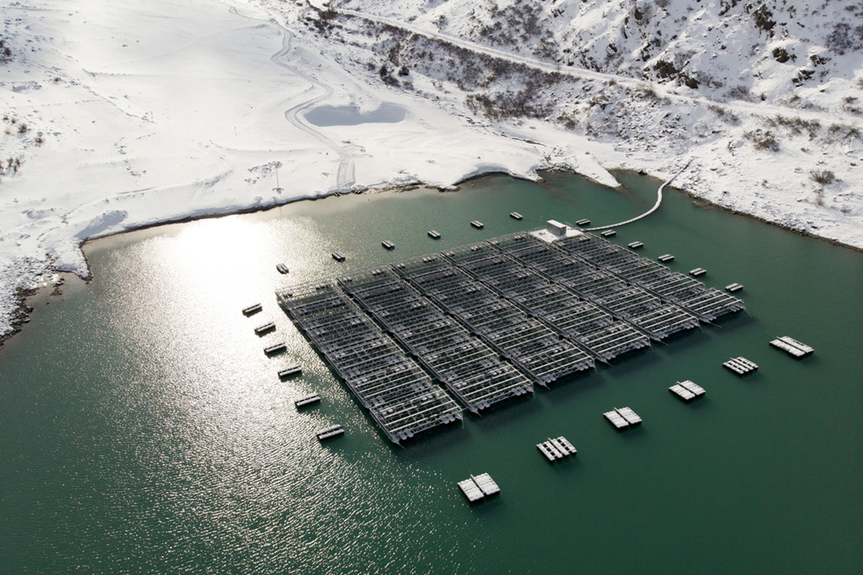
The goal of sustainable finance is to divert more funds into environmentally and socially responsible projects. Keystone / Laurent Darbellay
Extra rules will only be imposed on the sustainable finance sector if banks fail to properly police themselves, says the Swiss government. The hands-off regulatory approach to ethical investing has been welcomed by financial players, but criticised by NGOs.
Unveiling a report on sustainable finance on Friday, Finance Minister Ueli Maurer said legislators would stay in the background as a last resort measure. However, the report identified a number of criteria it would monitor and called for improvements in some areas.
Banks, pension funds, insurers and asset managers are expected to step up efforts to make sure customers get full disclosure of relevant information on their investments and to better calculate the financial consequences of harmful activities.
A government press release said it “sees sustainable finance as a great opportunity for the Swiss financial center. In view of the global challenges, further efforts must be made to protect and further expand the interests and competitiveness of the Swiss financial center internationally”.
The government will monitor global efforts to benchmark and classify what sustainable investments actually are and what criteria need to be applied to market such products to clients. Tax breaks on sustainable investments and loosening the rules for pension funds to take part in the asset class are also being reviewed, according to the NZZ newspaper.
Sustainable finance follows the environmental, social and governance (ESG) aims of the UN’s 2030 Agenda for Sustainable Development and the Paris Agreement on climate change. The goal is to divert finance to eradicating poverty, inequality, conflict and the environmental degradation of the planet.
Rising investments
According to the latest Swiss Sustainable Investment Market Study, investments in this area have risen from CHF40.6 billion ($42 billion) in 2010 to CHF1.16 last year, leaping by 62% in 2019 alone. The Swiss Bankers Association has called the development of sustainable finance a “top priority” as demand for such investments grows.
The financial industry welcomed the government’s light regulatory touch, but some NGOs fear that they are more interested in cashing in on the latest growth trend than bringing about environmental or social improvements.
Greenpeace Switzerland said Switzerland had missed a golden opportunity to set concrete and enforceable standards on the financial industry and accused the Swiss government of lagging behind other countries in this respect, particularly in Europe.
A recent study by the NGOs Artisans of Transition and the Swiss Climate Alliance criticised the Swiss National Bank’s (SNB) “extremely weak position” on assessing the risks of climate change. It said the SNB was responsible for 43.3 million tonnes of CO2 emissions with its investments in fossil fuels – a figure that has barely dropped in recent years.
The study also took Credit Suisse and UBS (two banks that actively promote their sustainable credentials) to task for their records in investing in fossil fuel projects and stated that three quarters of Switzerland’s largest 60 pension funds have no climate policy.
Full story here Are you the author? Previous post See more for Next postTags: Business,newsletter































